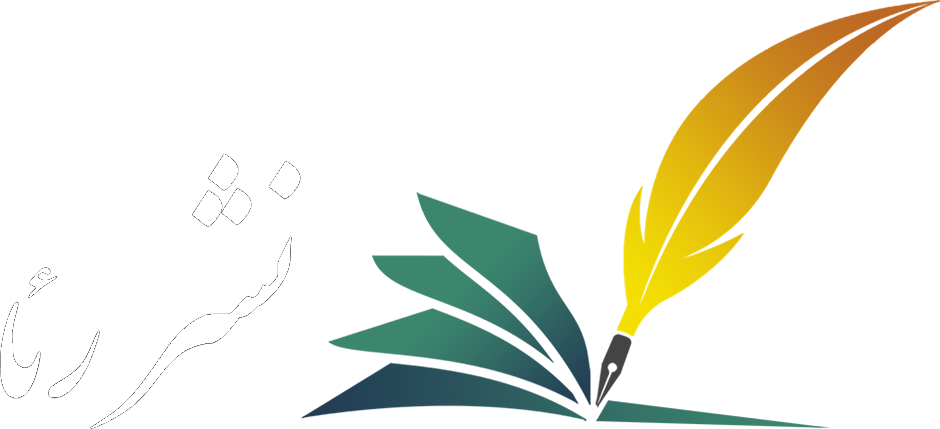ارزیابی تطبیقی دو استاندارد ایزو 10015 و ایزو 21001 به منظور پیادهسازی در حوزه مدیریت آموزش در پژوهشگاه علوم و فناوری اطلاعات ایران (ایرانداک)
چکیده
هدف: این پژوهش با هدف مقایسه و ارزیابی تطبیقی دو استاندارد ISO 10015:2019 و ISO 21001:2018 در حوزه مدیریت آموزش و انتخاب استاندارد مناسب برای پیادهسازی در پژوهشگاه علوم و فناوری اطلاعات ایران (ایرانداک) انجام شد.
روششناسی پژوهش: برای مقایسه این دو استاندارد، از یک چارچوب ارزیابی شامل 13 معیار نظیر هدف، دامنه، تمرکز، شایستگی و الزامات فرآیندی استفاده شد. پس از انتخاب استاندارد مناسب، مراحل اجرایی شامل شناخت وضعیت موجود، تدوین مستندات، آموزش کارکنان و ممیزیهای داخلی و خارجی انجام گرفت.
یافتهها: این مطالعه در سطح سازمانی و با تمرکز بر ایرانداک صورت گرفت. استاندارد ISO 21001 در این سازمان پیادهسازی شد و گواهینامه رسمی آن از مرجع LiberoAssurance دریافت گردید.
اصالت/ارزش افزوده علمی: نتایج ارزیابی تطبیقی نشان داد که ISO 21001 با توجه به جامعیت، انعطافپذیری و تمرکز بر یادگیرنده، برای ایرانداک مناسبتر است. پیادهسازی این استاندارد منجر به ارتقا کیفیت آموزش، افزایش رضایت ذینفعان و بهبود بهرهوری شد، اگرچه چالشهایی نظیر مدیریت تغییر فرهنگی، منابع و نیاز به آموزش مستمر نیز وجود داشت. این تجربه میتواند بهعنوان الگویی برای سایر موسسات آموزشی مورد استفاده قرار گیرد.
کلمات کلیدی:
مدیریت آموزش، ایزو 21001: 2018، ایرانداک، استانداردسازی، بهبود سیستمها و روشهامراجع
- [1] Khedr, A. E., Idrees, A. M., Hegazy, A. E. F., & El-Shewy, S. (2018). A proposed configurable approach for recommendation systems via data mining techniques. Enterprise information systems, 12(2), 196–217. https://doi.org/10.1080/17517575.2017.1293301
- [2] Hassouna, D. H. A., Khedr, A. E., Idrees, A. M., & ElSeddawy, A. I. (2020). Intelligent personalized system for enhancing the quality of learning. Journal of theoretical and applied information technology, 98(13), 2199–2213. https://www.jatit.org/volumes/ninetyeight13.php
- [3] Idrees, A., Mounir, G., Khater, E. S. M., Mosallam, E., & Khedr, A. E. (2023). The impact of applying iso standards systems on improving the quality of the performance in higher educational institutions in Egypt. International journal of electrical and computer engineering systems, 14(4), 457–464. https://hrcak.srce.hr/300949
- [4] Khedr, A. E., Idrees, A. M., & Alsheref, F. K. (2019). A proposed framework to explore semantic relations for learning process management. International journal of e-collaboration (IJEC), 15(4), 46–70. https://doi.org/10.4018/IJeC.2019100104
- [5] ISO 10015:2019. (2019). Quality management—Guidelines for competence management and people development. https://www.iso.org/standard/69459.html
- [6] ISO 21001:2018. (2018). Educational organizations—management systems for educational organizations—Requirements with guidance for use. https://www.iso.org/standard/66266.html
- [7] Iranian Documentation Center. (2022). Iran information science and technology research institute (IRANDOC). (In Persian). https://IRANDOC.ac.ir/about
- [8] Karami, S., Shobeiri, S. M., & Jafari, H. (2016). Development of the climate change education plan in formal education based on educational process management in the ISO 10015 standards. Journal of environmental studies, 42(1), 245-258. (In Persian). https://doi.org/10.22059/jes.2016.58119
- [9] Anttila, J., & Jussila, K. (2016). Quality management in educational organizations. The journal of quality in education, 6(7), 9. https://doi.org/10.37870/joqie.v6i7.24
- [10] ISO 21001:2018. (2018). Educational organizations–management systems for educational organizations–requirements with guidance for use. https://pecb.com/whitepaper/iso-210012018--educational-organizations--management-systems-for-educational-organizations--requirements-with-guidance-for-use
- [11] Seniwoliba, J. A., & Yakubu, R. N. (2015). An analysis of the quality assurance policies in a Ghanian university. Educational research and reviews, 10(16), 2331–2339. https://eric.ed.gov/?id=EJ1078361
- [12] Teeroovengadum, V., Kamalanabhan, T. J., & Seebaluck, A. K. (2016). Measuring service quality in higher education: Development of a hierarchical model (HESQUAL). Quality assurance in education, 24(2), 244–258. https://doi.org/10.1108/QAE-06-2014-0028
- [13] Swanzy, P., & Potts, A. (2017). Quality assurance strategies in higher education: The case of Ghanaian Polytechnics. Education research and perspectives, 44, 100–127. https://search.informit.org/doi/epdf/10.3316/informit.325957957226413
- [14] Seyfried, M., & Pohlenz, P. (2020). Assessing quality assurance in higher education: quality managers’ perceptions of effectiveness. In Impact evaluation of quality management in higher education (pp. 24–37). Routledge. https://doi.org/10.1080/21568235.2018.1474777
- [15] Wibisono, E. (2018). The new management system iso 21001: 2018: What and why educational organizations should adopt it. Proceeding of 11th international seminar on industrial engineering and management (pp. 66–73). Industrial Management Departmant. http://repository.ubaya.ac.id/id/eprint/36836
- [16] Do, D. T., Le, C. L., & Giang, T. V. (2020). The correlation between internal quality assurance and the formation of quality culture in Vietnam higher education: A case study in Ho Chi Minh city. European journal of educational research, 9(2), 499–509. https://eric.ed.gov/?id=EJ1250455
- [17] Joarder, M. H. R., Ali Ashraf, M., & Ratan, S. R. A. (2020). Quality education from faculty management perspectives in private higher education: Does faculty commitment behaviour mediate?. International journal of education and practice, 8(1), 190–206. https://eric.ed.gov/?id=EJ1249692
- [18] Gilbert, D. D. (2020). ISO Alongside, Instead, or Inside? The potential of ISO 21001: 2018 to change and challenge higher education accreditation. International journal of business and applied social science, 6(10), 45–52. http://www.cpernet.org/
- [19] Abdulsalam, A. A. (2022). Availability of the requirements of the international standard ISO 21001:2018 in educational institutions a case study in the college of administration and economics, university of Mosul. Tikrit journal of administrative and economic sciences, 18(57), 469–487. http://dx.doi.org/10.25130/tjaes.18.57.1.25
- [20] Ansari Tarai, M. (2018). Evaluation of the educational process based on the iso 10015 standard in the specialized mother company for the production of thermal electricity, master’s thesis, faculty of psychology and educational sciences, allameh tabatabai university [Thesis]. (In Persian). https://B2n.ir/zz5821
- [21] Hosseini, S. M. (2010). Pathology of human resources training. The first national conference of education and research managers. Civilica. (In Persian). https://civilica.com/doc/101170/
- [22] Khairollah Poursaraei, F. (2019). Feasibility study of implementing iso 21001 standard in the staff training system, case study of iran information technology organization, Tehran university of science and culture [Thesis]. (In Persian). https://B2n.ir/sp1299
- [23] Vartiainen, P. (2002). On the principles of comparative evaluation. Evaluation, 8(3), 359–371. https://doi.org/10.1177/135638902401462484
- [24] Danaeifard, H., Alvani, M., & Azar, A. (2019). Qualitative research methodology in management: A comprehensive approach. Saffar Publications. (In Persian). https://B2n.ir/sz3962





